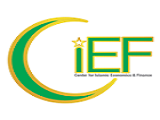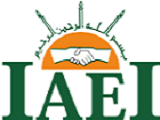Assessing The Awareness and Perceptions of Muslim Entrepreneurs on The Benefits of Islamic Microfinance in The Philippines
Abstract
Islamic banking is gaining popularity around the world as an alternative financial system that encourages ethical and socially responsible investing. The Muslim population in the Philippines accounts for a sizable share of the country's micro, small, and medium-sized enterprise (MSME) sector. However, due to a variety of problems, including a lack of understanding, limited access to Islamic Microfinance products, and insufficient regulatory frameworks, the adoption of Islamic financing among Muslim businesses remains low. The purpose of this study is to analyze Muslim entrepreneurs' awareness and perceptions of the benefits of Islamic Microfinance in the Philippines.
A mixed-methods research strategy was used in the study, which combined quantitative and qualitative data collection methods. A survey questionnaire was distributed to selected Muslim entrepreneurs from diverse industries in the Philippines for the quantitative component. The poll measured their degree of awareness and understanding of Islamic finance, as well as their perceptions of the benefits of Islamic Microfinance and the factors that prevent them from utilizing Islamic Microfinance products. The qualitative component included in-depth interviews with selected respondents to acquire a better understanding of their experiences and perspectives on Islamic Microfinance.
The study is important because it adds to the literature on Islamic Microfinance in the Philippines and has the potential to promote financial inclusion and economic development among Muslim communities. The study's findings shed light on the impediments to Islamic Microfinance adoption among Muslim entrepreneurs and influenced policy suggestions targeted at supporting the expansion of the Islamic finance industry in the Philippines. Furthermore, the conclusions of the study are applicable to other nations with considerable Muslim populations, particularly those with developing Islamic banking industry.
The research's main outcome was a comprehensive investigation of Muslim entrepreneurs' awareness and attitudes of the benefits of Islamic finance in the Philippines. The study sought to provide empirical facts that may be used to inform the creation of policies and initiatives targeted at encouraging MSMEs in the country to use Islamic Microfinance products. Finally, the findings of the study contributed to the general growth and development of the Islamic finance industry in the Philippines, as well as to the promotion of financial inclusion and economic empowerment among Muslim communities.
Keywords
Full Text:
PDFReferences
Abdul Rahman, A. R. (2007). < Islamic Economics: Theoretical and Practical Perspectives in a Global Context> Islamic Microfinance: A Missing Component in Islamic Banking. イスラーム世界研究: Kyoto Bulletin of Islamic Area Studies, 1(2), 38-53.
Adnan, M. A., & Ajija, S. R. (2015). The effectiveness of baitul maal wat tamwil in reducing poverty: The case of Indonesian Islamic microfinance institution. Humanomics, 31(2), 160-182.
Ahmad, S., Lensink, R., & Mueller, A. (2020). The double bottom line of microfinance: A global comparison between conventional and Islamic microfinance. World Development, 136, 105130.
Ahmed, H. (2002). Financing Microenterprises: An Analytical Study Of Islamic Microfinance Institutions. Islamic Economic Studies, 9, 28-64.
Alkhan, A. M., & Hassan, M. K. (2021). Does Islamic microfinance serve maqāsid al-shari'a?. Borsa Istanbul Review, 21(1), 57-68.
Azmi, N. N. I. N. M., & Thaker, M. A. B. M. T. (2020). Literature survey on Islamic microfinance. Global Review of Islamic Economics and Business, 8(1), 023-033.
Fersi, M., & Boujelbéne, M. (2016). The determinants of the performance and the sustainability of conventional and Islamic microfinance institutions. Economics World, 4(5), 197-215.
Fianto, B. A., Maulida, H., & Laila, N. (2019). Determining factors of non-performing financing in Islamic microfinance institutions. Heliyon, 5(8), e02301.
Hasbi, H. (2015). Islamic microfinance institution: the capital structure, growth, performance and value of firm in Indonesia. Procedia-Social and Behavioral Sciences, 211, 1073-1080.
Hassan, S., Rahman, R. A., Bakar, N. A., Mohd, R., & Muhammad, A. D. (2013). Designing Islamic microfinance products for Islamic banks in Malaysia. Middle-East Journal of Scientific Research, 17(3), 359-366.
Kaleem, A., & Ahmed, S. (2010). The Quran and poverty alleviation: A theoretical model for charity-based Islamic microfinance institutions (MFIs). Nonprofit and Voluntary Sector Quarterly, 39(3), 409-428.
Khan, A. A. (2008). Islamic Microfinance. Birmingham, UK: Islamic Relief Worldwide.
Khan, A. A., & Phillips, I. (2010). The influence of faith on Islamic microfinance programmes. Islamic Relief Worldwide.
Mansori, S., Chin, S. K., & Safari, M. (2015). A shariah perspective review on Islamic microfinance. Asian Social Science, 11(9), 273-280.
Masyita, D., & Ahmed, H. (2013). Why is growth of Islamic microfinance lower than its conventional counterparts in Indonesia. Islamic Economic Studies, 21(1), 35-62.
Maulana, H., Razak, D. A., & Adeyemi, A. A. (2018). Factors influencing behaviour to participate in Islamic microfinance. International Journal of Islamic and Middle Eastern Finance and Management, 11(1), 109-130.
Naveed Aslam, M. (2014). Role of Islamic microfinance in poverty alleviation in Pakistan: An empirical approach. International Journal of Academic Research in Accounting, Finance and Management Sciences, 4(4).
Obaidullah, M. (2008). of the Book: Introduction to Islamic Microfinance.
Obaidullah, M. (2015). Enhancing food security with Islamic microfinance: insights from some recent experiments. Agricultural Finance Review, 75(2), 142-168.
Obaidullah, M., & Khan, T. (2008). Islamic microfinance development: Challenges and initiatives. Islamic Research & Training institute Policy Dialogue Paper, (2).
Rahim Abdul Rahman, A. (2010). Islamic microfinance: an ethical alternative to poverty alleviation. Humanomics, 26(4), 284-295.
Rahman, R. A., & Dean, F. (2013). Challenges and solutions in Islamic microfinance. Humanomics: The International Journal of Systems and Ethics, 29(4), 293-306.
Rahman, R. A., Al Smady, A., & Kazemian, S. (2015). Sustainability of Islamic microfinance institutions through community development. International Business Research, 8(6), 196.
Riwajanti, N. I. (2013). Islamic microfinance as an alternative for poverty alleviation: A survey. Afro Eurasian Studies, 2(1-2), 254-271.
Rohman, P. S., Fianto, B. A., Shah, S. A. A., Kayani, U. N., Suprayogi, N., & Supriani, I. (2021). A review on literature of Islamic microfinance from 2010-2020: lesson for practitioners and future directions. Heliyon, 7(12), e08549.
Rokhman, W. (2013). The effect of Islamic microfinance on poverty alleviation: Study in Indonesia. Economic Review: Journal of Economics and Business, 11(2), 21-30.
Saad, N. M. (2012). Microfinance and prospect for Islamic microfinance products: The case of Amanah Ikhtiar Malaysia. Advances in Asian Social Science, 1(1), 27-33.
Seibel, H. D., & Dwi Agung, W. (2006). Islamic microfinance in Indonesia (No. 2006, 2). Working Paper.
Srisusilawati, P., Rusydiana, A. S., Sanrego, Y. D., & Tubastuvi, N. (2021). Biblioshiny R Application on Islamic Microfinance Research. Library Philosophy and Practice, 1-23.
Umar Faruq Ahmad, A., & Rafique Ahmad, A. B. (2009). Islamic microfinance: the evidence from Australia. Humanomics, 25(3), 217-235.
Wediawati, B., Effendi, N., Herwany, A., & Masyita, D. (2018). Sustainability of Islamic microfinance in Indonesia: A holistic approach. Academy of Strategic Management Journal, 17(3), 1-14.
Wilson, R. (2007). Making development assistance sustainable through Islamic microfinance. International Journal of Economics, Management and Accounting, 15(2).
DOI: http://dx.doi.org/10.24042/ijebi.v9i1.17862
Refbacks
- There are currently no refbacks.
Copyright (c) 2024 Jawad Zacaria Salic

This work is licensed under a Creative Commons Attribution-ShareAlike 4.0 International License.
Ikonomika : Jurnal Ekonomi dan Bisnis Islam is a Journal of Islamic Economics and Business, Published by the Faculty of Islamic Economics and Business at UIN Raden Intan Lampung Indonesia. This work is licensed under a Creative Commons Attribution-ShareAlike 4.0 International License.






11.png)



.png)
1.png)
.png)
.png)
.png)
2.png)
.png)
.png)
.png)